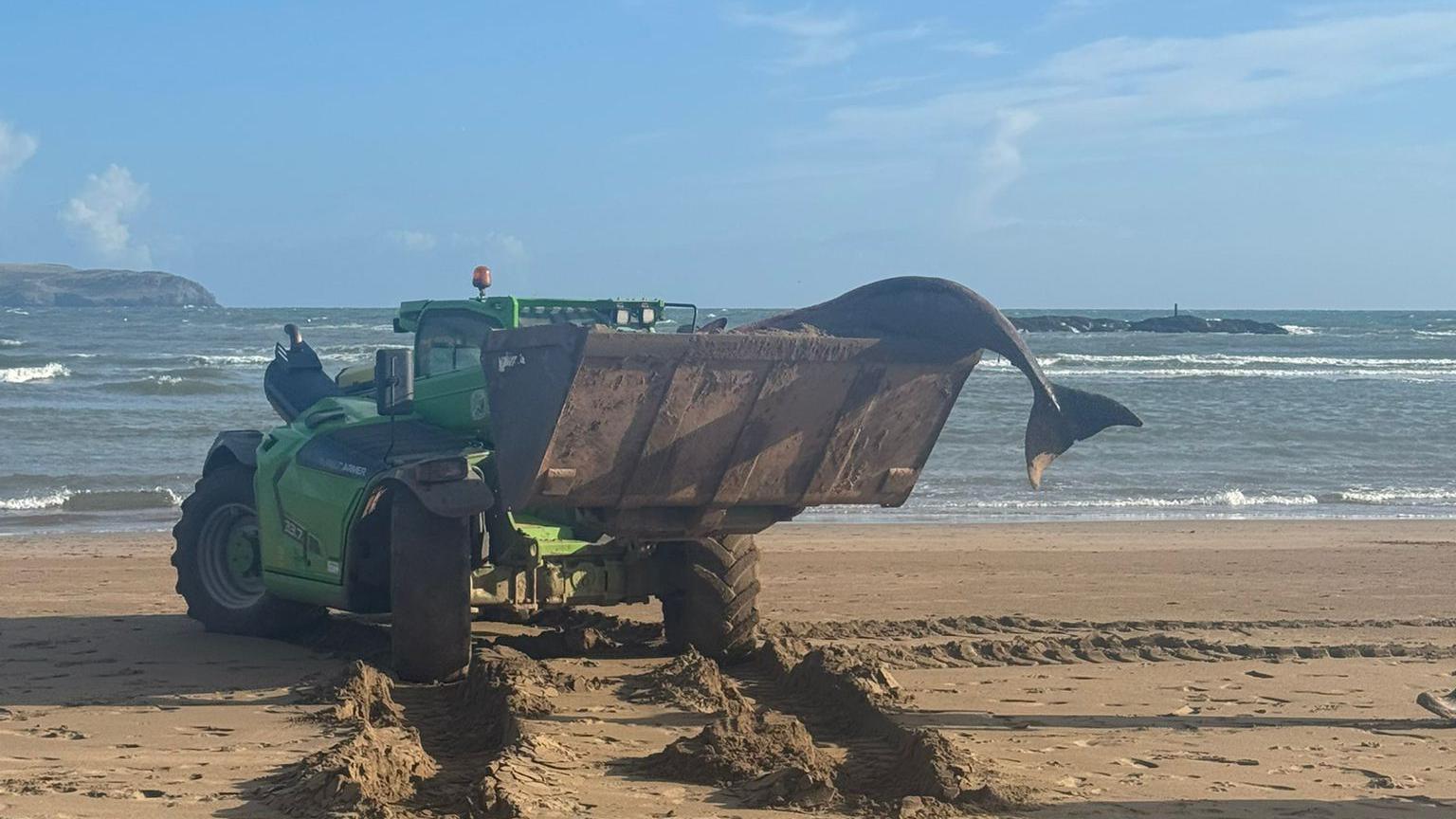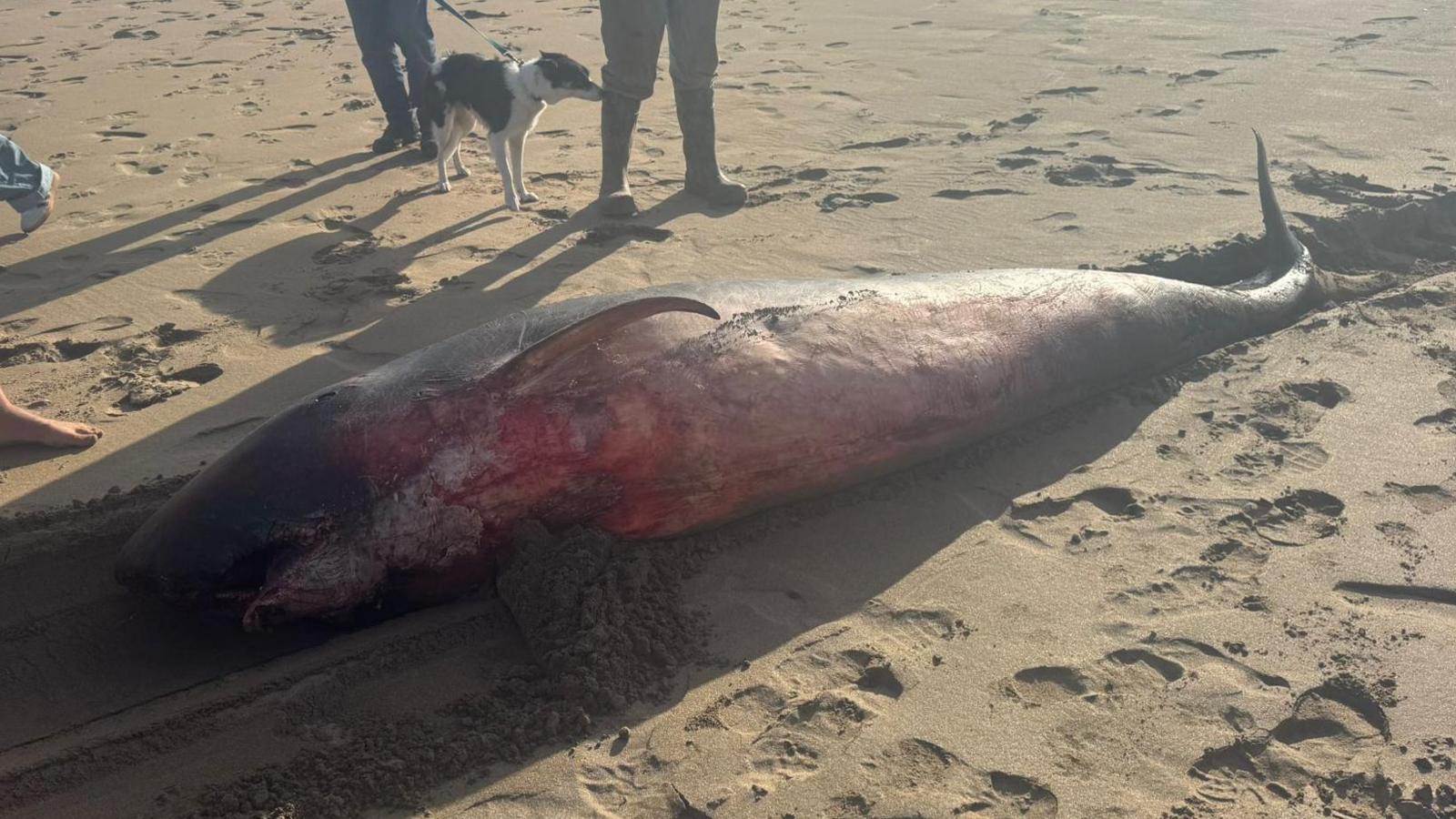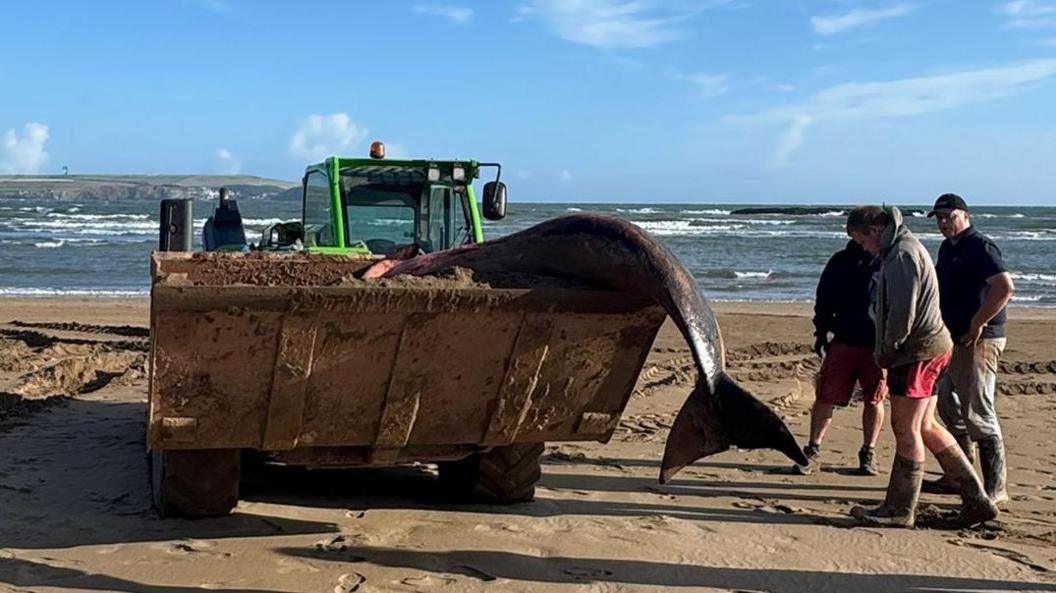Rare whale likely died of head trauma, tests show

The Cetacean Strandings Investigation Programme (CSIP) have confirmed the cause of death of the rare whale
- Published
A "very rare" whale found washed ashore in Devon likely died from a head trauma, post-mortem tests have revealed.
The Pygmy Sperm Whale, which was about 11ft to 13ft (3.5m to 4m) long, was found dead at Bigbury on Sea on Monday and was collected by the Cetacean Strandings Investigation Programme (CSIP) on Wednesday for tests.
Rob Deaville, project manager at CSIP, said the rare species was more decomposed than the team would have liked, but they still managed to gain data and information from the body.
"It was definitely a Pygmy Sperm Whale and not a dwarf," he said, adding it was an "aged adult male" because a lot of its teeth were "missing, fractured or broken".
Warning: This article contains a graphic image
"I'll be honest, I didn't think we were going to work out what happened to it because it was fairly decomposed," he said.
"But towards the end of the exam, we found some haemorrhage and evidence trauma around the head, and I think that is significant," he said.
"It's consistent with some form of physical trauma being a cause of that animal's death but what caused it is impossible to say."
He added: "It's not a pattern of trauma I've seen before, we are speculating there was beach damage elsewhere, or something happened to it out there, we just don't know."

Pygmy Sperm Whales have a lifespan of between 25 to 30 years, according to literature
According to literature, the species has a lifespan of between 25 and 30 years, Mr Deaville explained.
"The only way to know for sure is to use the teeth to age them, a bit like a tree trunk, they have growth lines in the tooth so that is how we age them."
In his 35 years of working at the CSIP, he said there had been about 16,000 cetacean strandings in England and Wales. He has only seen four Pygmy Sperm Whales during this time.
"It is a really unusual stranding," he added.
"It's been a real privilege to examine an animal like that because you just don't see them that frequently.
"It's a sad event but we try and learn as much as we can to shed more light on how these animals live as well as how it's died."
Follow BBC Devon on X, external, Facebook, external and Instagram, external. Send your story ideas to spotlight@bbc.co.uk, external.
Related topics
- Published2 September
